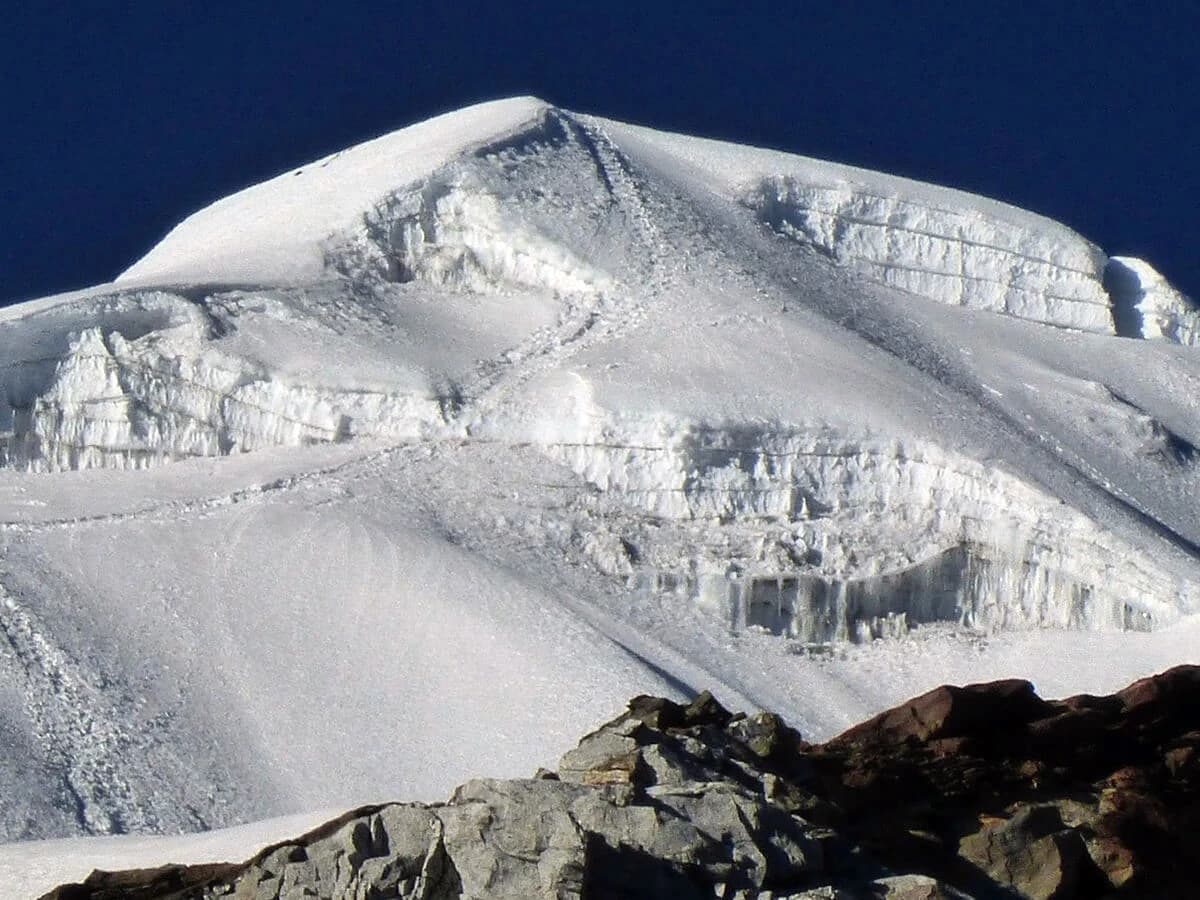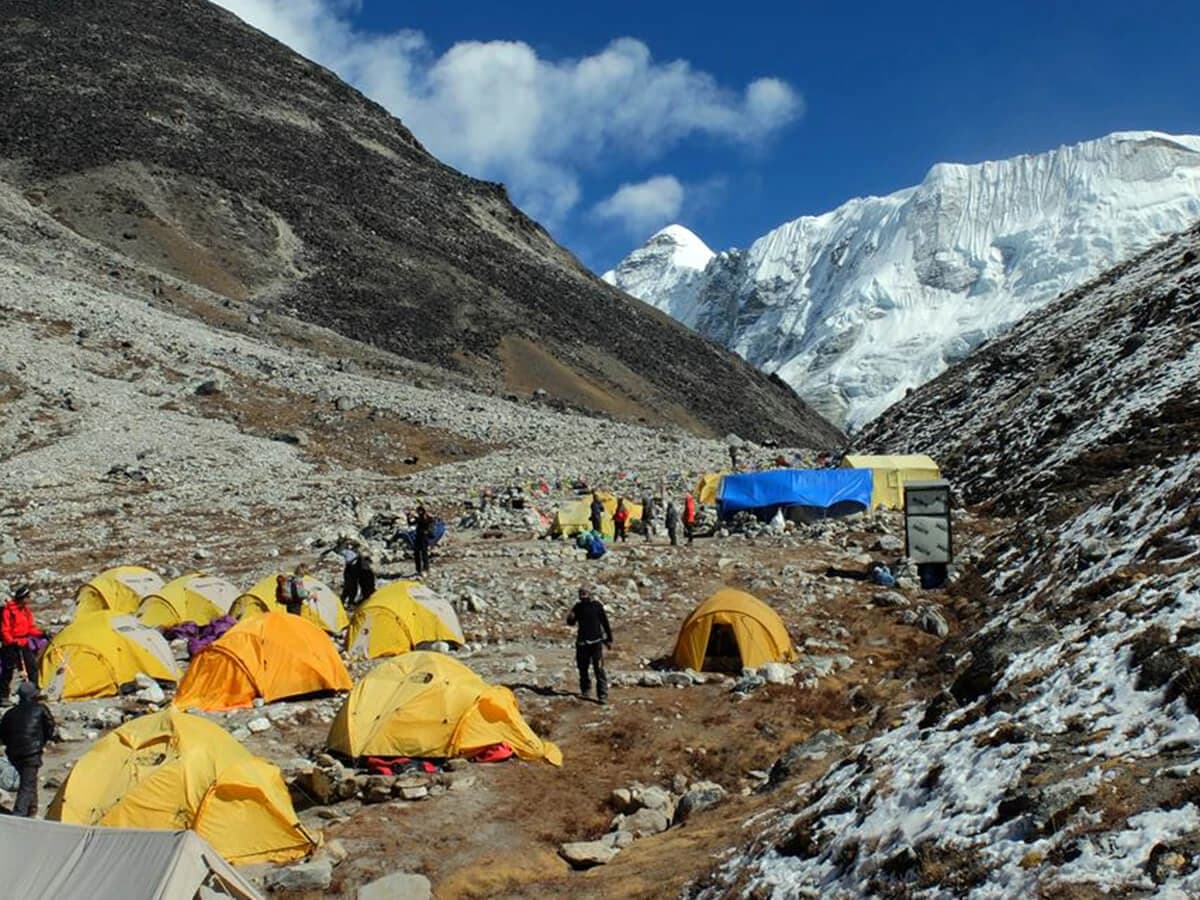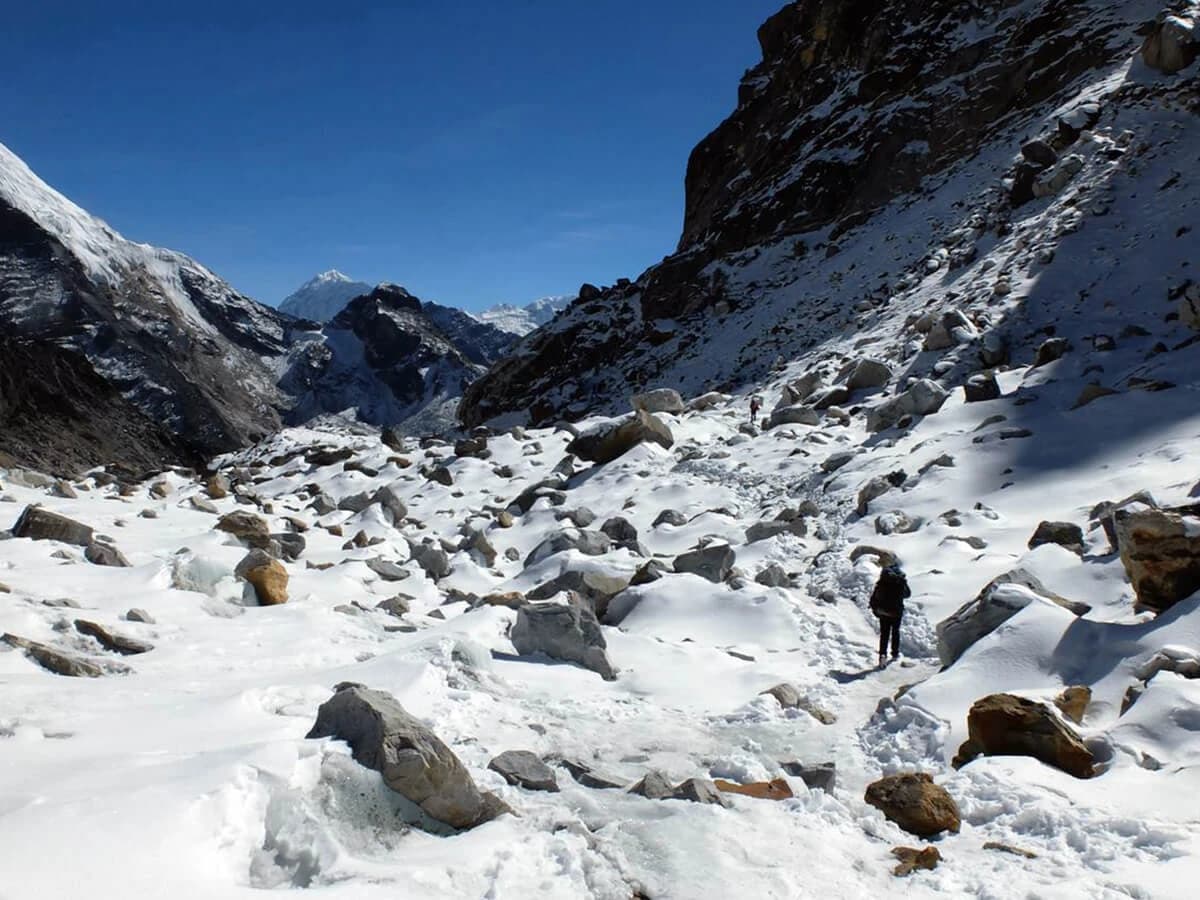The Island Peak Climb with Everest Base Camp (EBC) is one of the most iconic adventure journeys through the heart of the Khumbu region, combining the thrill of high-altitude trekking with peak climbing. The Island Peak climb with the Everest Base Camp itinerary traces the classic Everest Base Camp trekking route and then only begins the climbing section to the Island Peak at an elevation of 6,189 m above sea level.
Also called Imja Tse, the 20 days for Island Peak Climbing with the Everest Base Camp itinerary is so that you are properly acclimatized and make it successfully to the Island Peak summit. Acclimatization days in Namche Bazaar and Dingboche, and contingency days are so that you make it to your destination safely, and also do not miss out on any of the major highlights of the Everest trekking regions. Sherpa culture, serene natural beauty, and outstanding mountain views are worth a multi-day hike and climb.
At Skybound Adventure, we are offering group discounts for groups of trekkers and climbers with more than 10 members on the Island Peak Climb with Everest Base Camp (EBC) cost, and is valid for the years 2026 and 2027. Our more than 20 years of experience ensures you a hassle-free journey, relishing the best amenities possible at the time. Trained for high-altitude expeditions and first aid, a professional guide leads the tough terrain and manages the logistics for you.
While our comprehensive Island Peak Climbing with Everest Base Camp (EBC) covers meals, lodging, transportation, guides, and porters, followed by essential legal documents once you get into Nepal, flexibility and peace of mind are there, allowing you to completely focus on the Himalayan expedition to Everest Base Camp and Island Peak. Contact us now and reserve your seat for 2026 and 2027. We are here to make your journey memorable, safe, and secure.
What to expect during the Island Peak trip with the trek to Everest Base Camp (EBC)?
Climbing one of the six thousanders in Nepal is more than a nature walk or strolling around the park areas. Island Peak (6,189 m) is above sea level, which is one of the beginner-friendly mountain ranges; it is physically demanding. Expect several days of high-altitude trekking, 3,000 m above sea level, where the level of oxygen is significantly lower than at sea level, almost 50%.
Following the Sherpa villages, green valleys, and high-altitude landscapes, it is scenically enriching, worth adding to the bucket list of 2026 and 2027. By the 11th day you would have already made it to the Everest Base Camp (EBC), which also marks the beginning of the second phase of the Island Peak Hiking with Everest Base Camp Trekking, watching Lhotse, Nuptse, Ama Dablam, Makalu, and Everest itself, especially from Kala Patthar (approx. 5,644 m) above sea level. Expect unmatched adventure.
Island Peak Climb with Everest Base Camp—Is this trip right for you?
Yes, for trekkers and climbers seeking to sharpen their climbing skills and knowledge, Island Peak Climbing with Everest Base Camp Trekking is just the right trip. Especially for first-timers who want to test themselves in the high-altitude Himalayas before attempting seven-thousand-meter and eight-thousand-meter peaks like Bartunse, the Mount Manaslu Expedition, and even the Mount Everest Expedition itself, it serves as the right practice ground with high chances of success with the right itinerary from Skybound Adventure.
However, if you are someone with heart, lung, and knee issues or suffering from any chronic health problems, it is advisable to consult with the concerned authority at first and decide by yourself. Otherwise, if you are physically fit and conditioned for high altitude or have begun at least three months before the Island Peak Climb with Everest Base Camp (EBC), for extra adventure seekers, it is just the right Himalayan odyssey for you.
How to prepare yourself for climbing to Island Peak and Trek to Everest Base Camp?
A proper preparation for Island Peak Climbing with Everest Base Camp (EBC) is with awareness of the uneven trails and risks that are prone to high-altitude Himalayan trekking routes, such as acute mountain sickness (AMS), and making oneself both physically and mentally ready for it. While Island Peak and Everest Base Camp (EBC) both are not technical, basic climbing skills are better. So, cardiovascular and strengthening exercises are highly recommended.
Consider swimming, running, and cycling activities followed by planks, lunges, and stair climbing to strengthen your core, legs, and upper body. For a better real taste of high-altitude trekking and mountaineering experience,, consider a multi-day hike in your local terrain with a backpack. While our mountain guide does provide you with training in Island Peak Base Camp, it is always good to research and keep yourself acquainted with some climbing skills and conditions.
What should you pack for a climb to Island Peak with Everest Base Camp (EBC)?
A successful Island Peak Climb with Everest Base Camp (EBC), other than the mental and physical preparation for basic conditions, unpredictable Himalayan weather, and demanding high-altitude Himalayan trekking routes with steep ascents and descents, also requires appropriate gear and equipment. High-quality trekking and some climbing gear ensure you are comfortable, increase mobility, and also aid in making it to the Island Peak Summit. Three layers of clothing, broken-in hiking boots, trekking poles, a first aid kit, and personal medications are essential.
In addition to these, it is wise to have climbing ropes, a jumar, and crampons specifically for the climbing section to Island Peak. However, make sure that you do not overload. While you may hire porters, there is a limitation on how much they can carry at once, and it is not more than 25 kg shared between two trekkers and climbers. If you are planning only this single trip, it may cost you quite a good sum of money, whereas Skybound Adventure comes with a rescue. Our package price also comes with good trekking and climbing gear lists, including extra blankets for colder nights. Save with us!
From Everest Base Camp to Island Peak: A perfect blend of high-altitude trekking and climbing!
The Island Peak Climb with the Everest Base Camp (EBC) offers an unforgettable adventure trekking through the ancient Sherpa village, suspension bridges, and monasteries dating back centuries. The climb to Island Peak (6,189 m) includes passing by glaciers and also involves rope techniques. The views of the sky and towering snow-capped mountain ranges spread vastly, some up to Tibet; it is a perfect stepping stone for those dreaming of higher peaks.
With Skybound Adventure, you get an experienced professional, reasonable cost, and fixed departures in spring and autumn, including in the years 2026 and 2027. Book your adventure now with us and set out on an unparalleled Himalayan adventure confidently. Breathe in the fresh mountain air, and conquer your fear as you also conquer Island Peak and the base of the highest mountain in the world, Mount Everest (8,848.86 m). Professional and happy to make customizations for you. This is your right time to connect with us!


